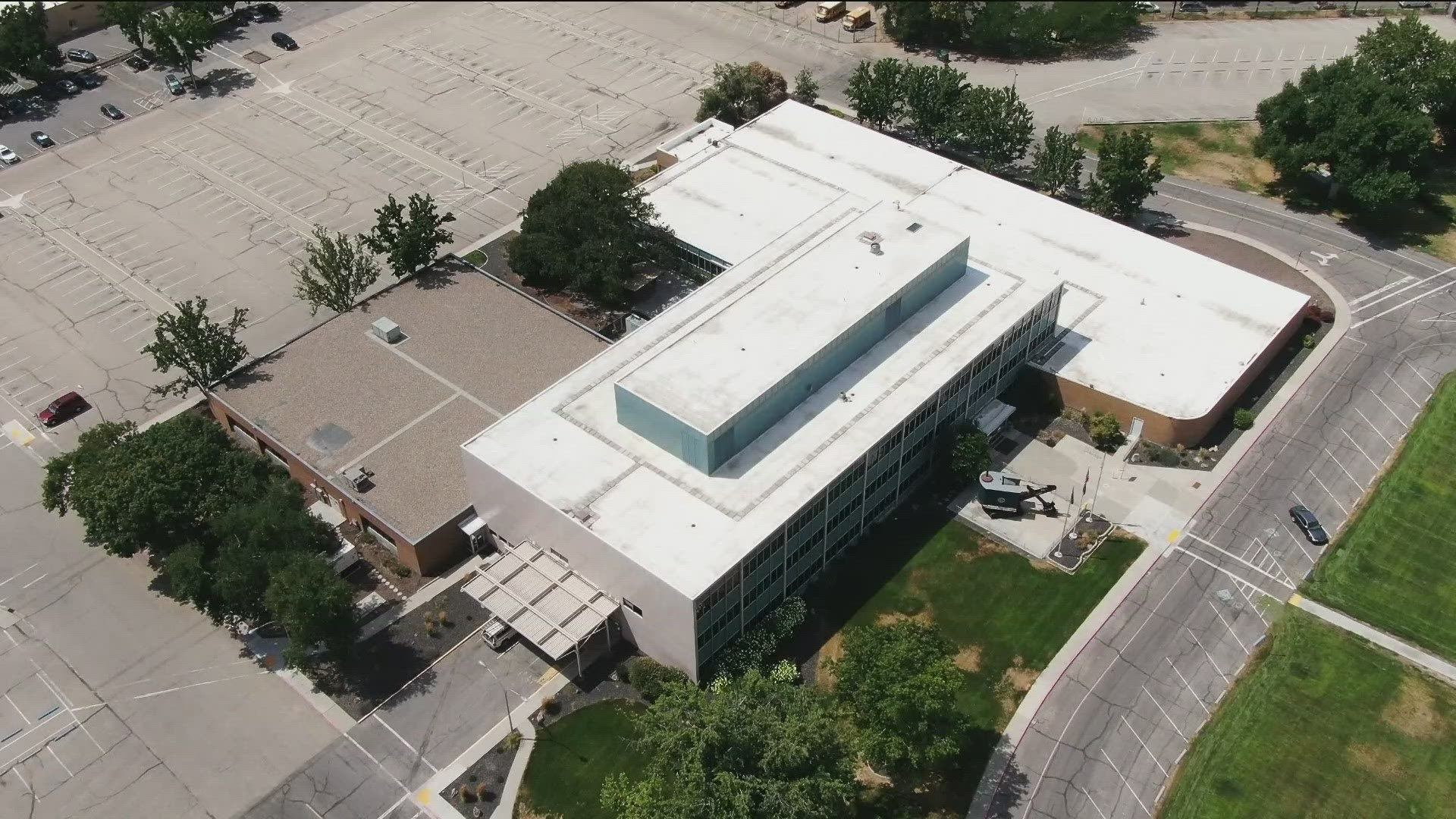BOISE, Idaho — This article originally appeared in the Idaho Press.
University of Idaho leaders have remained steadfast in their confidence in a proposal to acquire the large online higher education institution the University of Phoenix.
UI President C. Scott Green and other university leaders held a Q-and-A with state lawmakers Thursday in Moscow regarding the proposal, which was greenlit to move forward in the process by a unanimous State Board of Education vote on May 18.
“We get one chance at this transformative endeavor, and I would not be moving forward if I was not completely confident in the work that has been done to understand and shore up risks, identify opportunities and find synergies between our two institutions,” Green said.
Rep. Dustin Manwaring, R-Pocatello, and Sen. Mark Harris, R-Soda Springs, asked about the university’s statutory and constitutional authority to make the sale, the potential risks and benefits to Idaho’s students, the motivations for the school’s owners to sell, and oversight of the nonprofit entity that will oversee the University of Phoenix if the sale does go through, among other questions.
Officials also addressed other legislators’ submitted questions about ongoing liability, competitiveness between the two institutions, broadband access to support programs statewide, and the costs of creating UI’s own online platform.
The recent State Board of Education decision will allow UI to create a not-for-profit entity called NewU that would issue the bonds to go forward with the purchase; the net purchase price is $350 million.
Manwaring asked if lawmakers and the public could be assured that there’s been a thorough review of the university’s authority to move forward under state law as well as what contractual obligations it would take on moving forward.
Nick Miller, a partner at the Boise-based law firm Hawley Troxell, said the main issue is that the university will incur some liabilities by issuing debt through what’s essentially a leveraged buyout. However, UI’s obligations would be minimal because the debt will be secured through the University of Phoenix’s (UoPX) revenues, “which are significant.”
“So in a perfect world, there’s no obligation to the University of Idaho at all,” Miller said.
There may be a requirement from the bond market to pledge funds as a backstop if UoPX’s revenues aren’t enough to make bond payments.
“That pledge will be limited to being sourced from university funds, not state funds, we cannot access appropriated funds, we cannot pledge appropriated funds for that purpose,” Miller said.
He said case law finds that if the funds pledged aren’t from the state, then it wouldn’t be considered the state’s debt.
Harris asked why the UoPX’s owners were looking to sell, given that it is reporting profitability.
Leaders from UoPX previously told the Idaho Press there was a time horizon on the investment that is ending, which is why the private equity firm that holds it is looking to sell and move on.
A submitted question asked about the potential for ongoing liability for costs associated with pending Borrower Defense Claims against UoPX. Green previously told the Idaho Press it’s estimated this liability could come to up to about $7 million annually.
He said Thursday there are a number of mitigating measures that UI would implement, including an agreement from UoPX to leave $200 million with NewU if the transaction goes through.
He said, that “for an $800 million business, even if it is $7 million, that can be easily handled by that business.”
Another questioned if UI and UoPX would be competing with each other.
“We are competing currently,” Green responded, “but if we affiliate, we won’t be.”
He said the university is looking at opportunities to create pathways between the institutions, for instance, if a UI student may want to take an online UoPX class to graduate more quickly or a UoPX graduate student may want to go in a physical lab or do field research at UI.
Harris asked about how in-state or out-of-state tuition would work at UoPX.
Because the University of Phoenix is a national online school, in-state tuition wouldn’t be offered to Idaho students. However, Green said he would want to pursue an opportunity to create scholarships for students in the state to better access its classes.
Green also fielded submitted questions regarding Idaho’s broadband infrastructure and if UI looked into the cost of building its own online platform compared to the purchase price of UoPX.
Idaho’s broadband infrastructure still has more work that needs to be done, Green said, although the state and federal governments have recently made investments to strengthen it. He also noted that during the pandemic, UI upgraded the broadband at its extension offices and research centers, which UoPX students could use if they didn’t have reliable access to the internet at home.
Green said building out as expensive of an online platform as UoPX’s would be “a tall order,” and it wouldn’t come with the 85,000 students who are currently enrolled in the online university’s programs.
“Here we get it all at once,” he said.
Manwaring asked who would oversee the not-for-profit entity NewU.
UI Provost and Executive Vice President Torrey Lawrence said NewU would be governed by an independent board that meets accreditation requirements from UoPX’s accreditor. The State Board of Education, which sits in as UI’s board of regents, would select the members of NewU’s board, he said.
These requirements include that the board is majority independent, meaning they have no economic connection to the operation of the entity
Green said the transaction is in alignment with goals state lawmakers have put forth for Idaho’s universities, including running more “business-like,” creating pathways for rural students, and producing degrees for in-demand jobs.
“This transaction responds to all of those asks,” Green said.
The acquisition cannot move forward until it is approved by both institutions’ accreditors.
UI officials are slated to discuss the proposal with the state budget-writing committee on June 16.
“There are many opportunities ahead, most have yet to be developed,” Green said. “But none of them are possible until we have a successful transaction.”
This article originally appeared in the Idaho Press, read more on IdahoPress.com.
Watch more Local News:
See the latest news from around the Treasure Valley and the Gem State in our YouTube playlist:



